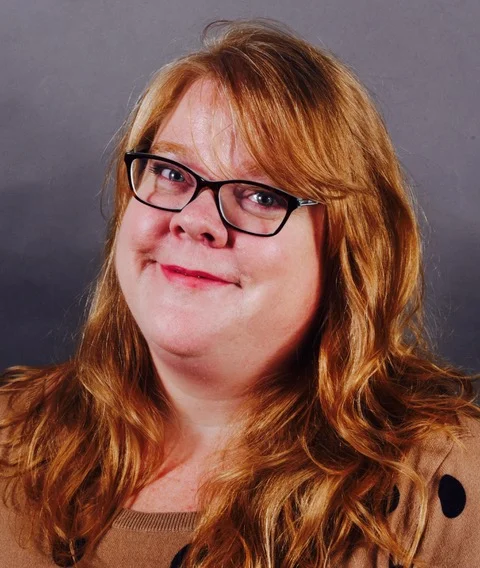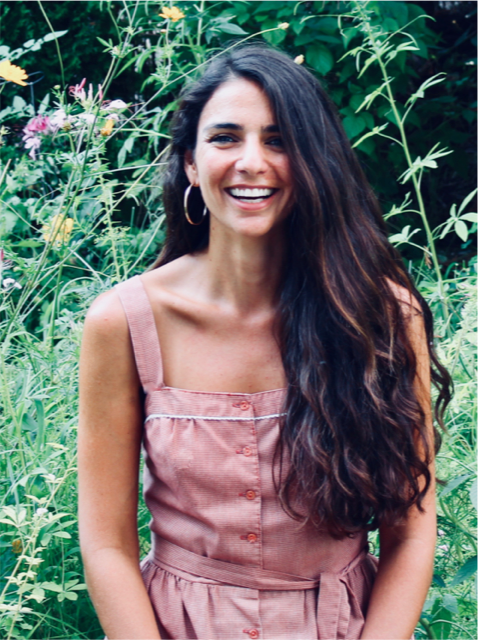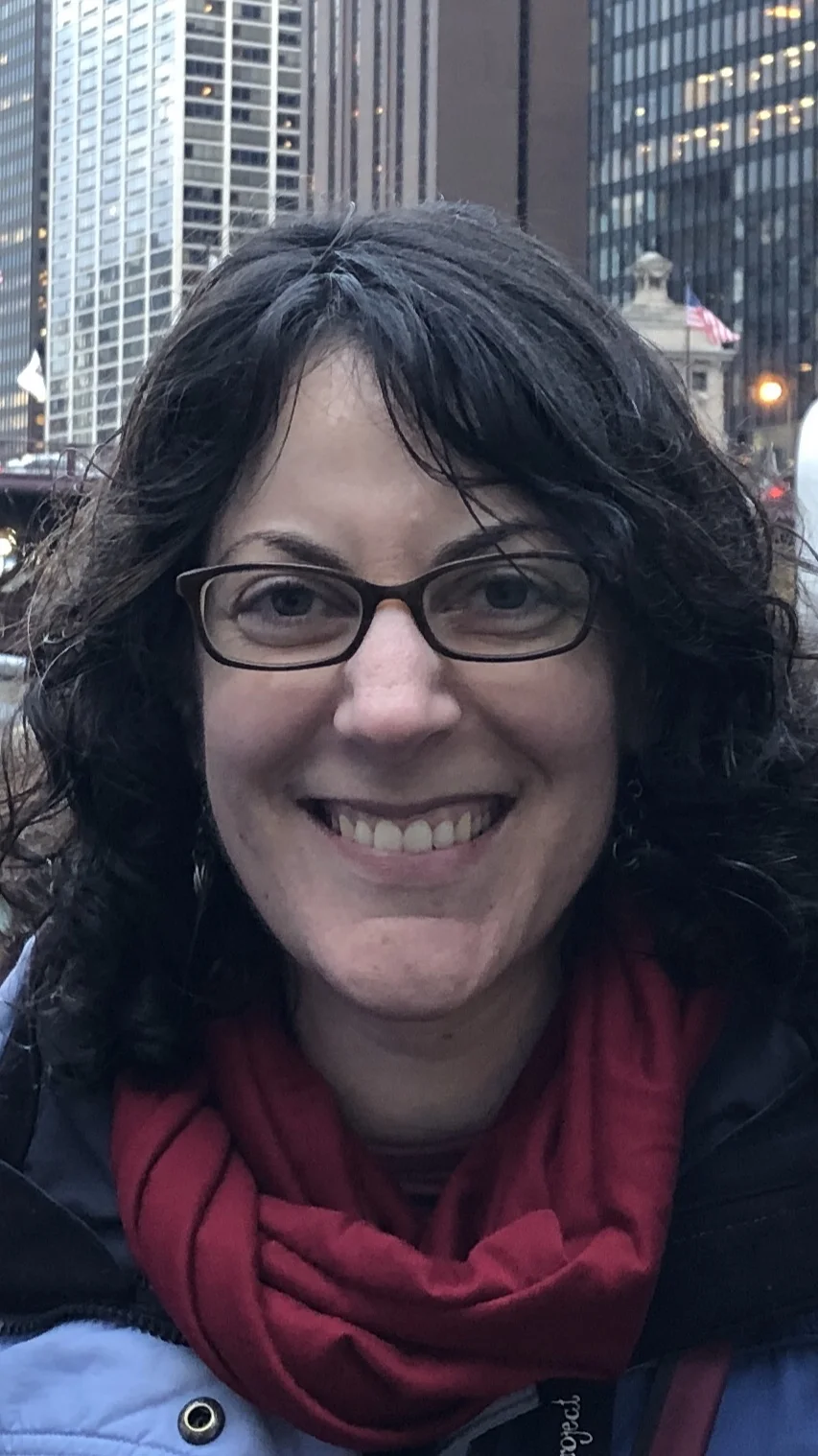Spotlight Interview with Amanda Wiehe Lopes, MS.Ed., Early Childhood Education Researcher & Consultant
I met Amanda because we both completed the UMass Boston Post Masters Certificate In Early Childhood Education Research, Policy and Practice program. Since then, I have worked with her on a few different projects and have always been wowed at her intelligence, creativity, and hard work on a myriad of issues related to early education and care. Below is my interview with Amanda and if you would like to work with her as a consultant this is her website: http://www.creativitece.com
Question: What types of experiences have you had working in the early childhood education field?
Amanda: I began babysitting at age 10 so sometimes I think that I have been caring for children since I was a child myself. I never wanted to be a teacher though. I thought teachers were people who wore khakis and had lots of rules – that description never fit me. I was a Theater Arts major in college and ran summer programs for young children (preschool through 3rd grade) then was the first employee at a theater arts after school program that tripled in size during its first year. It was then that I started to be curious about combining my love of theater with my love of working with children. I first started to think of myself as a “teacher” when I was a Teaching Artist for the Seattle Children’s Theater drama school teaching creative dramatics classes for preschoolers and running their half day theater-immersion preschool program. I also did outreach for them writing curricula for and teaching various programs at museums, scout troupes, libraries, and elementary schools around the state. We had an amazing team of creative educators that really helped me hone my teaching voice and develop my curriculum writing skills. I started to become really passionate about nurturing the creativity in others. Traveling to so many different schools and programs I started to see the ways that classroom teachers’ creativity was either encouraged or squelched by administrators or the system itself. At the same time, I was Education Director at a theater, which was my first taste of administration and the complex schedules and “budget juggling” I had to practice was great training for my later work as an ECE program Director. Later I became an Infant/Toddler teacher while pursuing my M.S.Ed. in Early Childhood Education and worked as a Teaching Artist for the New York State Theater Institute developing more programs for preschoolers. Then I moved to Boston to be the Assistant Director at a nursery school and developed an internship program for college students interested in pursuing a career in early education. I started teaching as an adjunct professor and consulting on the side to support programs in developing creative approaches to curriculum writing (inspired by my days in children’s theater). More recently I have been offering ECE leadership consulting such as supporting Directors through leadership transitions, licensing, or finding creative solutions to the complex everyday problems of program administration. The guiding force in my career has been memories of creative experiences during my own childhood and my early work as a Teaching Artist.
Question: You are currently pursuing your PhD in ECE, what inspired you to pursue that and what is the focus of your research ?
Amanda: I wanted to continue for my PhD right after my master’s but was advised at the time to get some experience as a program administrator first. So I think the idea was in my head already, but I had no role models to serve as an example. In ECE I rarely met folks who had a master’s degree let alone had gone on to get a Ph.D. and I didn’t know what I would do with such a degree if I had one. It bothered me that as an early educator I was told to have “research based practice” but had no access to research journals. It bothered me that the voices of practitioners seemed absent in policymaking. Getting my Post Master’s Certificate in Early Childhood Education Research, Policy, and Practice at UMass Boston was one of these career turning points – I met Dr. Douglass who had worked in the field as an early educator and was demonstrating practice informed research. She was really the first person that I met in higher education who was that type of a role model for me and with her encouragement I decided to take the leap. I really enjoy teaching the next generation of early educators and exploring the ways that ECE teachers are prepared for entering and staying in the field. My research is still inspired by my experiences as a Teaching Artist and I am exploring ways that creativity can be nurtured in early education (in children and adults alike) through pedagogy, curriculum, and leadership. Based on my experiences as a creative dramatics teacher, I am also really fascinated by the neurological underpinnings of the imagination and am looking for ways to build bridges between the research traditions in psychology, neuroscience, and early education to examine how we can better understand what children experience during fantasy play.
Question: What makes you optimistic about the future or ECE and what do you think are the biggest challenges to improving quality?
Amanda: I am a cockeyed optimist at heart and working with children for so many years has primed me to look for the strengths in the world. I am so inspired by the natural creativity of young children and I believe that there is great possibility ahead. Early educators are an amazing group of professionals – they find creative solutions to complex problems every day as a natural part of their work. I think the challenge is to find pathways for policymakers and researchers to be present with the work of early educators in the unique context of ECE – rather than looking at how it fits into the already present system of k-12 education. Fundamentally ECE and k-12 education function differently, but when we can unite with the common cause of developmentally and culturally appropriate practices for children and families then great progress can be made. This has to begin with relationship-building. This has to begin with a celebration of the work that is currently being done by early educators.
Question: What are the similarities and differences between teaching young children and teaching/consulting with adults ?
Amanda: I approach teaching adults in the same way as I would begin preparing for teaching in my preschool classroom. It’s all about the Zone of Proximal Development for me. I try to meet my adult students where they are – learn about their prior experience and knowledge and support their growth moving forward in a collaborative and experiential way. Humans learn best through play, all mammals do, really. So I structure my courses and workshops with play or experimentation at the center and build the lecture around that. What was it Mary Poppins said? “You find the fun and snap, the job’s a game!” That’s basically my teaching philosophy in a nutshell. I also structure all of my courses around the principle from an improvisational theater game called “Yes, and…” The basic idea is that no matter what someone brings you – no matter how bold or bizarre - you have to accept their energy and build on it productively. I start my classes with this game and find that students really respond to it. There’s something powerful about knowing that your ideas are accepted. I want the early educators I work with to know that I accept and honor their ideas and will support them in finding creative ways for those ideas to grow. So in my college courses and workshops with early educators I try to practice the same principles of strength-based instruction as I did with the children and families I worked with as an early educator. I find that underneath it all we have the same need for acceptance and trust regardless of age and if we start with kindness and fun then learning sits on a pretty strong foundation, no matter what the level is.
Question: Do you think there are divides between different segments of the ECE community ( example, teachers, administers, policy makers, academic researchers) and if is so how do you think we can possible bridge some of those divides?
Amanda: I think as a teacher I felt divides between teachers and administrators and once I became an administrator, I worked very hard to fight against that. I don’t think there needs to be a divide, but sometimes that comes with the school culture – or maybe it’s just the title. I found that being a program administrator was a pretty lonely position. It’s why I like to focus some of my consulting on supporting program Directors. Part of my reason for entering the Ph.D. program was because of the divide I noticed between the research community and the practice community. I want to be the type of professor that stays connected to the field of practice. In academia we are required to do a certain amount of service and I prefer for all of my service to be directly impacting the field either through pro bono consulting, volunteering on a board of directors at a local ECE program, or assisting directors and teachers in their work. I am also looking for ways that I can disseminate my research in more accessible ways either by publishing companion pieces in practitioner journals (like Young Children) or using social media. I think the more we can connect the research community with the practice community the greater the impact – to both research and practice. Why don’t more researchers offer consulting to programs or lead professional development sessions at local conferences like BAEYC? Why don’t more policymakers create room for listening sessions with early educators during hours that make sense? I worked for almost 10 years down the street from the capital and never once knew there was an ECE advocacy day with legislators. In my experience the way to break down barriers is through relationship-building gestures – in many cases it’s as easy as sending an invitation.
Sometimes I think we need something bold like an early educator strike that will help shine the light on the importance of early education. Other times I think we just need early education to get an invitation to the table. I don’t know that there is any one fix that needs to occur, but I think the more that early educators are empowered to be part of a change within their field, the better. No one knows the ECE system and its challenges better than those working within it – so it seems to me that early educators, and the families they serve, should be part of the solution. We also all need to give ourselves permission to throw out the existing rules and try something new – be creative. Sometimes there is a justifiable reason why a rule is in place (such as safety), but many times we are continuing with a tradition simply because it was what existed when we arrived. So when I am faced with a problem either in research, school work, or life, I like to first imagine what I would do if I threw out all the rules. What is the most bizarre solution and work from there. This often makes problem solving more lighthearted, which certainly helps, and it frees me up to find creative paths. Using more creative practices in our work in ECE, following the lead of the amazing creativity in young children for example, would support our growth as a field and lead to more inspired work across the system.





